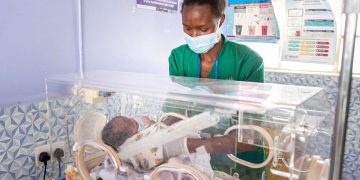By Elvina Majiwa
A bombshell report released on 12th February 2025 revealed that British American Tobacco Kenya (BATK) could have potentially avoided paying up to 28 million USD in taxes – enough money to help lift 56,000 young Kenyans out of extreme poverty and improve health care systems.
While young Kenyans struggle with limited access to quality education, mental health issues, unemployment and poverty, the report “Missing Millions: A cross-examination of British American Tobacco’s tax bill” uncovers massive discrepancies between BATK’s reported revenues and their actual cigarette production between the year 2017-2018. This revelation comes at a time when Kenya grapples with a youth unemployment crisis and rising costs of healthcare.
The investigation found that BATK, which controls 80% of Kenya’s tobacco market, produced far more cigarettes than it reported selling. The difference amounts to 9.6 billion Kenyan shillings (93 million USD) in unexplained revenue.
To put this in perspective, research by GiveDirectly and MIT has shown that direct cash transfers of just 500 USD can help lift a person out of extreme poverty. The missing tax revenue alone could have provided such life-changing support to 56,000 young Kenyans.
Meanwhile, tobacco’s toll on Kenya’s youth continues to mount. The report reveals that 12,000 Kenyans die each year from tobacco-related illnesses, with many young people becoming addicted despite rising cigarette prices.
“In this country, it is not for the government to decide how much tax BAT has to pay. It’s BAT that decides how much it pays,” says Dr. Khama Rogo, former chairman of the Kenyan Tobacco Control Board an advisory body of the government of Kenya.
The report comes as Kenya faces budget deficits and struggles to fund youth development programs. While the government raised taxes on ordinary citizens in 2023 and 2024, sparking civil unrest, it simultaneously put a hold on yearly excise increases for cigarettes.
BATK denies any wrongdoing, stating it “firmly rejects all allegations” and pays all taxes according to applicable laws. However, the company has not provided a detailed explanation for the discrepancies.
The Kenya Revenue Authority has yet to respond to multiple inquiries about these findings, raising questions about oversight and accountability in an industry that directly impacts youth health and development.
As young Kenyans continue to face economic hardships, the report’s findings highlight a crucial question: How many opportunities for youth development are being lost to corporate tax practices?
Governments while claiming to care about the youth, continue to fail us. It is important for the government to stop lip service and start showing that they care by making the tobacco industry pay.
Elvina Majiwa is a Tobacco Control and Health Promotion Champion














